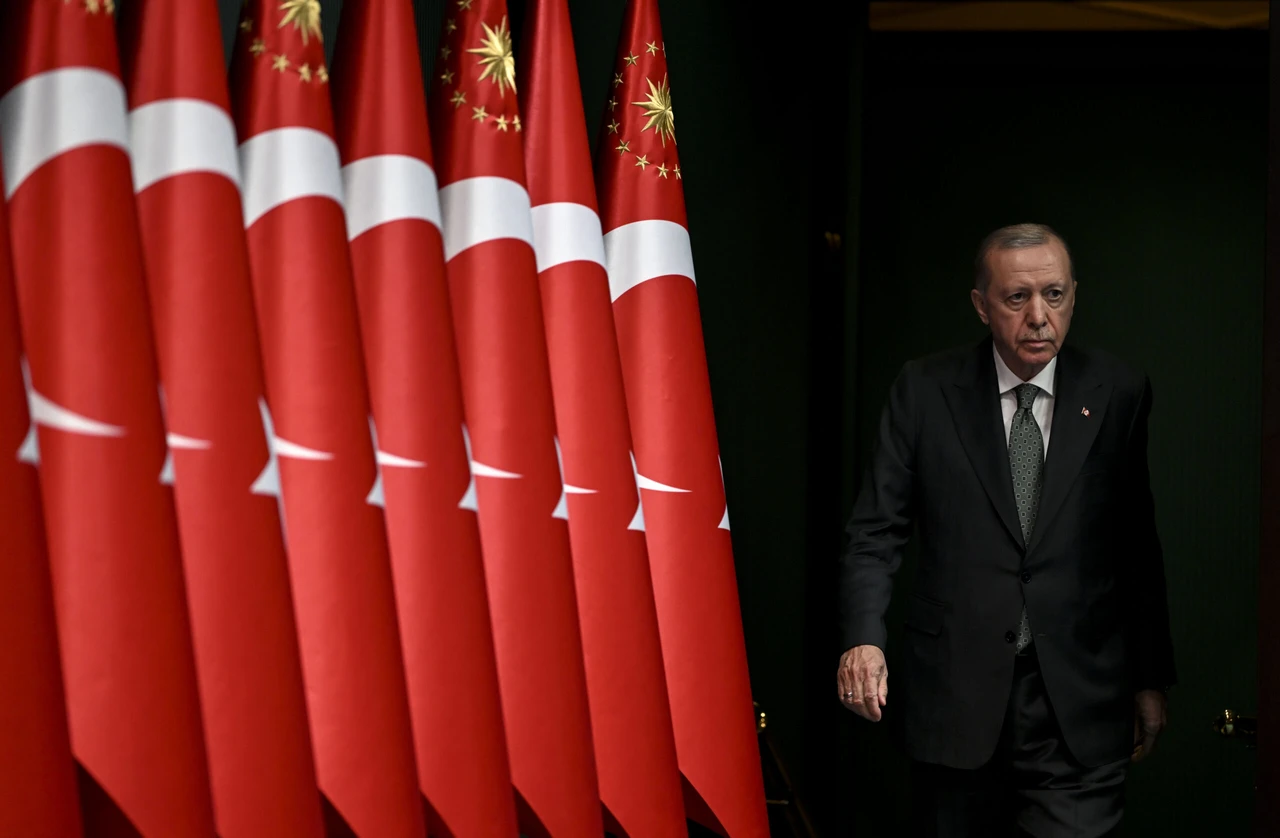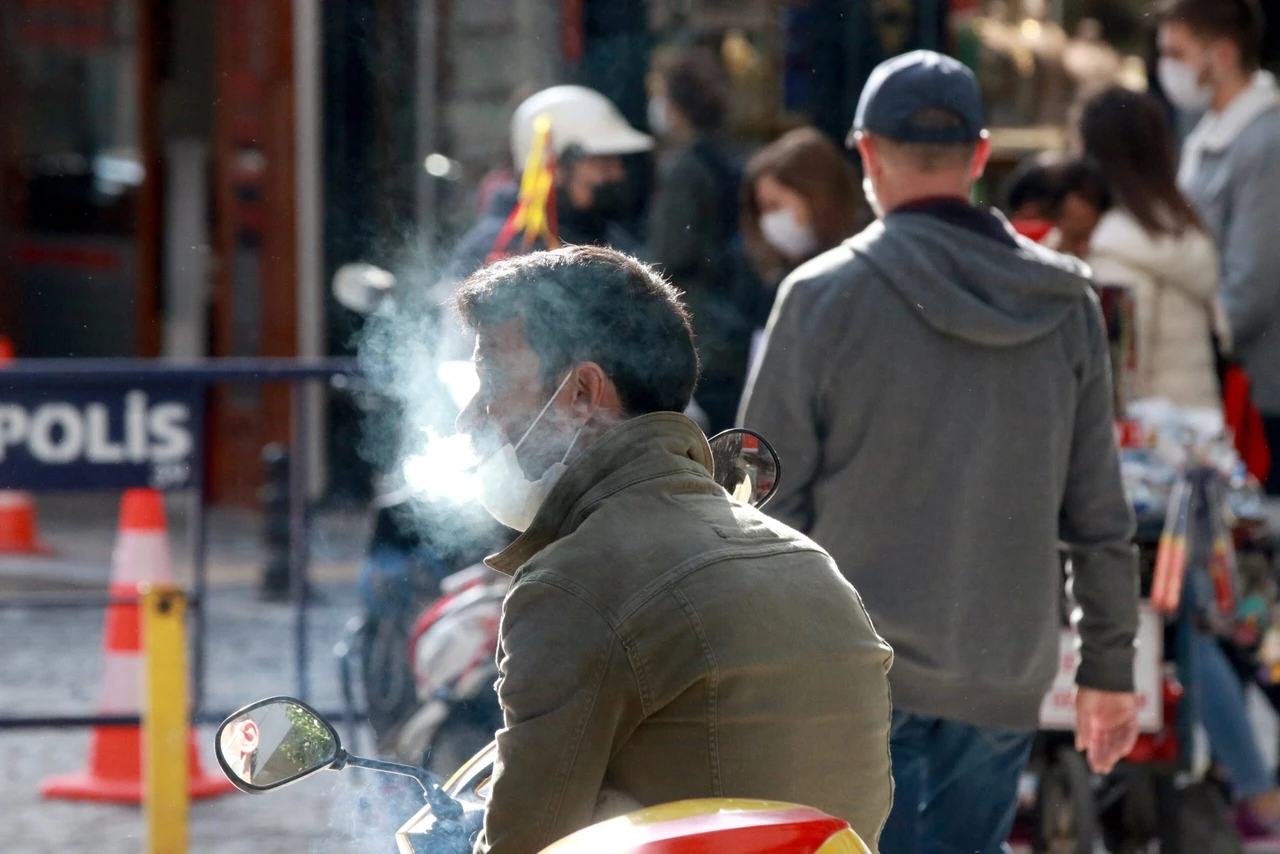Türkiye battles widespread crop damage as severe frost hits 36 provinces
 Blooming fruit tree buds encased in ice following severe frost Kayseri, Türkiye on April 12, 2025. (AA Photo)
Blooming fruit tree buds encased in ice following severe frost Kayseri, Türkiye on April 12, 2025. (AA Photo)
President Recep Tayyip Erdogan assured farmers Monday that the government would provide financial assistance to those affected by recent agricultural frost damage that has devastated crops across 36 provinces, while emphasizing that the country faces no risk to its food security.
“I want it to be known that our government stands by our farmers and producers in these difficult days with all its resources and capacity,” Erdogan said following a Cabinet meeting at the Presidential Complex in Ankara.
The severe cold snap that hit Türkiye in early April caused temperatures to plummet to as low as minus 17 degrees Celsius (1.4 degrees Fahrenheit) in some regions, with some areas recording their lowest temperatures in 30 years.
While Erdogan acknowledged the damage to fruit trees, he sought to dispel concerns about the country’s food security. “There is no risk that will negatively affect domestic food supply in agricultural products of strategic importance, especially grains, legumes, and oilseeds,” he said.
However, preliminary assessments indicate varying degrees of damage to fruit crops including apricots, grapes, apples, peaches, and nectarines. The Ministry of Agriculture has already begun damage assessment work across affected regions.
Government steps up support for affected farmers
Erdogan announced that the Ministry of Agriculture has begun working on compensating farmers registered in the Farmer Registration System who do not have agricultural frost insurance
“The Ministry of Agriculture has begun working to cover the expenses incurred for the production of damaged crops according to the damage ratio for our farmers who are registered in the Farmer Registration System and do not have agricultural frost insurance,” Erdogan said.
The president also highlighted the importance of agricultural insurance, noting that since the implementation of the Agricultural Insurance Pool (TARSİM) in 2006, 38.5 billion liras in premium support and 33.5 billion liras in damage compensation have been paid to producers.
Widespread damage across 36 provinces in Türkiye
The frost has severely impacted Türkiye’s agricultural heartlands, with damage reports coming from 36 provinces.
In Malatya, a key apricot-producing region, Governor Seddar Yavuz confirmed significant damage to apricot orchards. “Damage assessment work has begun in the field,” Yavuz said following a meeting with relevant institutions and civil society organizations.
Malatya Metropolitan Mayor Sami Er described the frost as “a very big blow” to the city’s apricot industry, which is central to global apricot trade. “The temperature in Malatya center dropped to 6-7 degrees below zero. In our higher altitude regions, the temperature dropped even further,” Er said.
In western Türkiye, Manisa province reported damage to grape vineyards and various fruit trees including cherries and apricots, as well as tomatoes, melons, and watermelons. In neighboring Izmir, grape vineyards in Menemen, Aliaga, and Selcuk districts were affected, while cherry trees suffered in Kemalpasa district.
The frost also impacted Türkiye’s key apple-producing region of Nigde, where temperatures fell unexpectedly. Atilla Kaplan, Chairman of the Nigde Apple Producers Association, expressed concern: “Last year we fell to 350,000 tons, and this year we will fall below that. It was really an extreme cold.”
Erdogan’s climate change concerns
During his address, Erdogan linked the frost damage to broader climate change impacts, noting that Türkiye is increasingly exposed to adverse effects of climate change.
“We are in a period when we are increasingly confronted with the bill for using nature, air, water, and soil—which we inherited from those before us and which are the trust of our children—recklessly,” Erdogan said.
He added that climate change manifests itself through various meteorological events including drought, floods, hail, and agricultural frost, with agricultural production—dependent on weather conditions—being among the most affected sectors.
As damage assessment continues across the country, the full impact of the frost on Türkiye’s agricultural output and economy remains to be determined. However, officials stress that crucial staple crops remain secure, with primary concerns centered on fruit production for the upcoming season.



